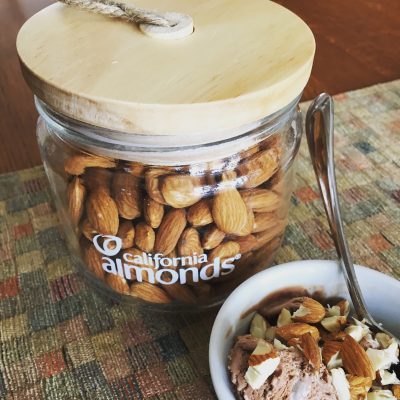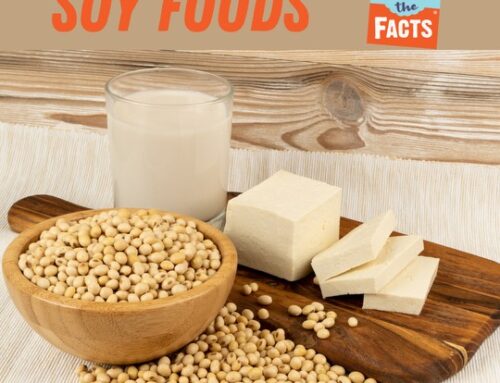Do you love nuts?
Nuts are a healthy food to include in your diet. As plant foods, they are naturally cholesterol-free. Studies have shown that including nuts in the diet is good for your heart and brain. Of course they’re also tasty, so it’s easy to add them to your diet. You can include a variety of nuts in your diet, or just choose the ones you enjoy most. Different types of nuts do have some unique nutritional benefits however.
There are lots of great reason to include a variety of nuts in your diet. Click To TweetChew the Facts® About Nuts
Each variety offers a specific nutrition profile and some research suggests nuts help manage or reduce the risk of disease. In general they all provide healthy fats, protein and fiber. Adding healthy fat and protein into your diet helps with satiety. Don’t shy away from nuts because they are high in calories due to their fat content. Instead, be mindful of your portions. Fiber can aid in digestion, and also helps you stay full longer, potentially helping with weight control. Keep a quarter-cup measuring cup handy to gauge serving size. A small handful of nuts provides 150-200 calories. An appropriate single serving is one ounce (about 1/4 cup).

Almonds: Protein and Diabetes
- Good source of protein – 6 grams of protein per ounce (about 1/4 cup or a handful).
- Good source of Vitamin E and magnesium.
- Provide 75 milligrams of calcium per serving (highest calcium in the nut category).
- A good bit of Potassium – 200 milligrams.
- The Almond Board of California suggests that almonds may help reduce diabetes risk and control blood sugar. They offers a great nutrition fact comparison sheet.
Pistachios: Protein and Weight Management
- More than 10% of your daily need for fiber, vitamin B6, thiamin, copper and phosphorus.
- Bonus – pistachios are small and powerful, so one serving is 49 nuts! Snacking on pistachios and other nuts may help with weight management due to their fiber and protein content.
- High in heart-healthy monounsaturated fat.
- One ounce of pistachios provides 6 grams of protein.
- An ounce of pistachio kernels provide 285 milligrams of potassium (good for lowering your blood pressure).
Walnuts: Heart-healthy Fats
- Walnuts pack the punch for heart-healthy fats, offering the highest amount of omega-3 alpha-linolenic acid (ALA) of any nut.
- Have been shown to lower LDL cholesterol and provide 2 grams of fiber per ounce.
- Provide 28 micrograms of folate (adults need 400 mcg a day; pregnant women need up to 800).
- Every ounce of walnuts provide 4 grams of protein.
- In addition to just eating a 12-14 walnut halves as a snack, you can cook with them too. Their “meaty” texture makes chopped walnuts a nice add-in to pasta dishes or stuffing, in place of ground meats or paired with smaller amounts of ground meats like sausage. They’re also great in salads.
Peanuts: Protein and Heart Health
- Peanuts provide the most protein at 7 grams per serving and are actually a legume (the “nut” is the seed).
- Good source of Vitamin E, magnesium, folate, copper and phosphorus.
- Excellent source of manganese and niacin (a B vitamin).
- Low in saturated fat, and high in heart-healthy unsaturated fat.
- Learn more about peanuts from the National Peanut Board.




